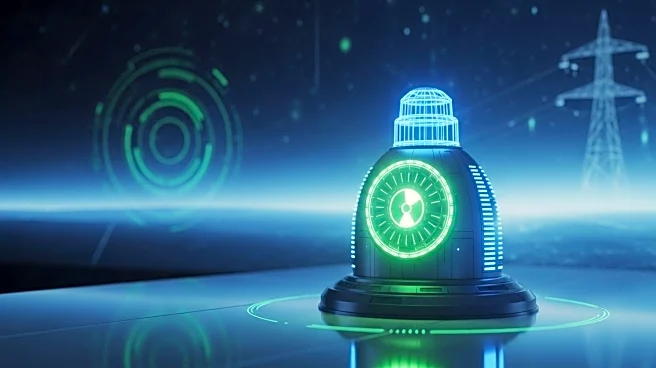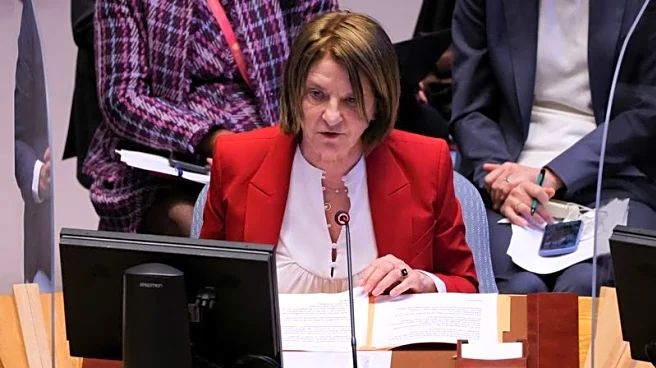What's Happening?
The Department of Energy (DOE) has launched a reactor pilot program to accelerate the development of advanced nuclear reactors in the United States. This initiative, established under an executive order, seeks to authorize demonstration projects outside national labs, aiming for criticality in at least three reactors by July 2026. The program bypasses the Nuclear Regulatory Commission, allowing DOE to directly authorize projects. Eleven projects from ten companies have been selected, with the goal of fast-tracking nuclear technology from concept to operation. The program requires companies to self-finance and select their own sites for reactor development.
Why It's Important?
This program represents a pivotal moment for U.S. nuclear energy, potentially revitalizing the sector by demonstrating the feasibility of advanced reactor designs. Success could attract significant private investment, reduce regulatory uncertainties, and position the U.S. as a leader in nuclear technology. The initiative aligns with broader energy policy goals, supporting clean energy transitions and addressing growing power demands. However, bypassing traditional regulatory oversight raises concerns about safety standards and public trust, which are critical for the long-term viability of nuclear energy.
Beyond the Headlines
The program's reliance on DOE authorization without NRC oversight could lead to public perception issues regarding safety standards. Maintaining rigorous safety protocols is essential to avoid undermining public confidence in nuclear energy. The initiative also highlights the strategic importance of nuclear energy in geopolitical contexts, as other countries advance their nuclear capabilities. Ensuring robust regulatory frameworks and public transparency will be key to the program's success and the broader acceptance of nuclear technology.










